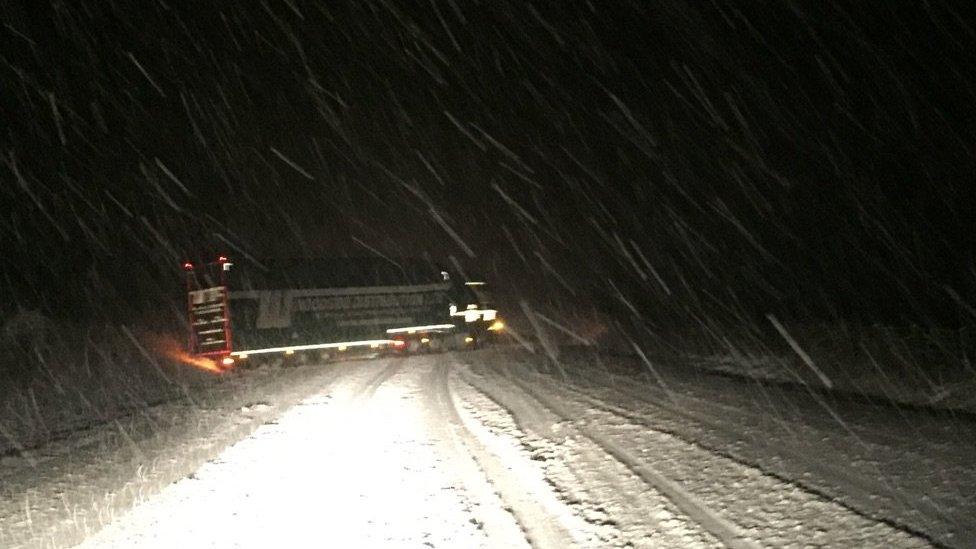Deadly storm Friederike causes Dutch and German transport chaos
- Published
Hurricane-strength gusts of up to 140km/h (90mph) caused transport chaos
Eight people including two firefighters have been killed in storm-related accidents as hurricane-strength winds tear across northern Europe.
Both firefighters were helping with clean-up efforts in Germany when they died.
Many of those killed, in the Netherlands and in Germany, were hit by falling trees and debris. One died in a collision when his van was blown on to the other side of the road.
The storm has now crossed to Poland.
Facing gusts of up to 140km/h (90mph), Germany's train operator Deutsche Bahn cancelled all long-distance services for the rest of Thursday.
Many regional services were also cancelled.
Flights at Schiphol airport in Amsterdam - one of the busiest in Europe - were briefly suspended and two of its three departure halls were closed after roof plates were blown off the terminal building.
People arriving at Schiphol told reporters they had experienced rough landings with some passengers around them throwing up.
The storm, called Friederike in Germany, crossed the country from west to east before reaching Poland.
As the storm heads eastward it will mix with snowfall, says the BBC Weather Centre's Sarah Keith-Lucas
It caused high winds in the UK on Wednesday night and Thursday morning, bringing down trees and knocking out power to tens of thousands of homes.
Meteorologists in Germany - where 65,000 homes are reportedly without power - warned people to stay indoors, and many schools are closed.
Deutsche Bahn had already suspended rail traffic, external in North Rhine-Westphalia (NRW), neighbouring Rhineland-Palatinate state and Lower Saxony, when it announced a Germany-wide suspension of long-distance trains. Any regional trains still running have cut their speed because of the strong winds.
A spokesman said it was the "right decision" due to the risk of trees falling on overhead wires and on tracks.
Many domestic flights have also been cancelled.
An emergency siren wailed in the city of Duisburg, external, warning residents that they should stay indoors, German news website WDR reported.
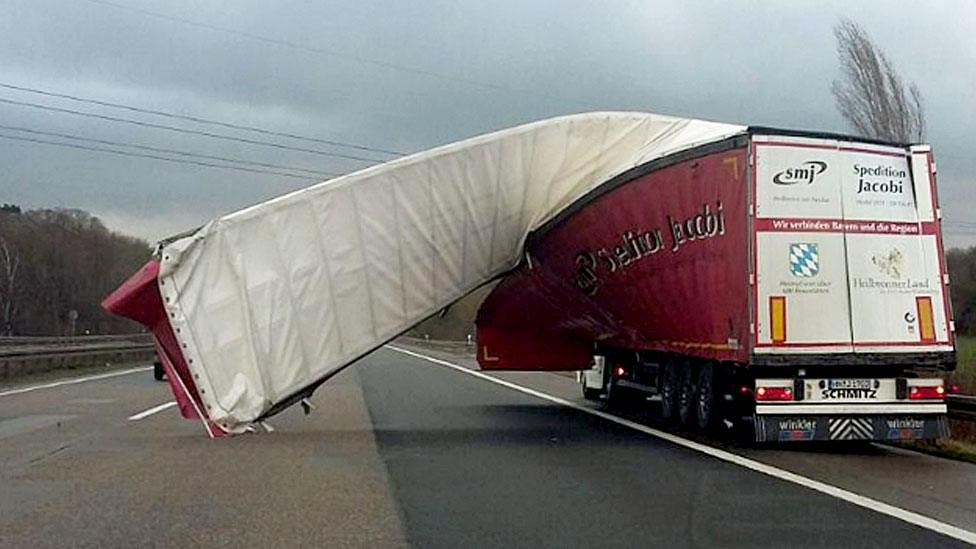
Fierce winds blew this lorry's tarpaulin off on the motorway in Germany
Twitter users posted photos of trucks and trees blown over by the gales. Many trees came down on railway lines.
Police temporarily closed the centre of Almere, a Dutch city with about 200,000 residents lying just east of Amsterdam.
They tweeted an alert warning people to stay at home because of risk from the storm.
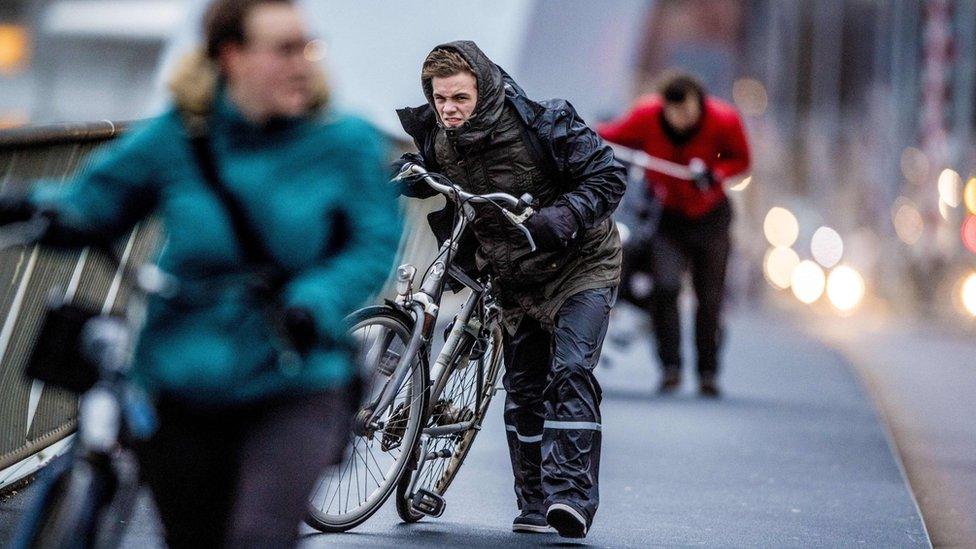
These cyclists in Rotterdam gave up trying to pedal through the storm
A national transport website, VID, reported that at least 17 trucks had been blown over by the strong winds.
The Dutch Railways (NS) and operator ProRail said overhead power lines had been damaged by the wind, as well as some railway tracks.
An alert on the NS website said that "at most, only a few trains" would run throughout the evening.
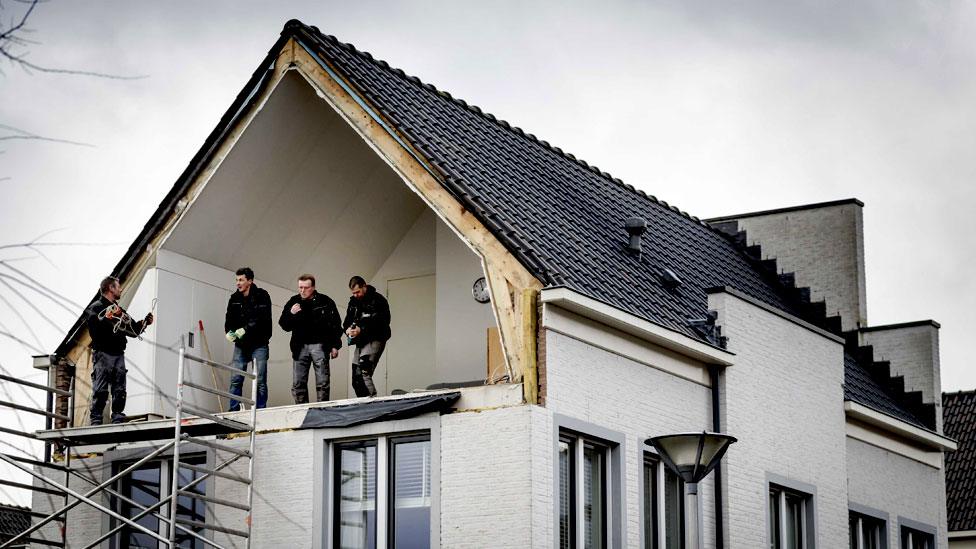
The wind blew the side off this house in De Meern in the Netherlands

Have you been affected by high winds and stormy weather? Share your pictures, video and experiences by emailing haveyoursay@bbc.co.uk, external.
Please include a contact number if you are willing to speak to a BBC journalist. You can also contact us in the following ways:
WhatsApp: +44 7555 173285
Send pictures/video to yourpics@bbc.co.uk, external
Tweet: @BBC_HaveYourSay, external
Text an SMS or MMS to 61124 (UK) or +44 7624 800 100 (international)
- Published18 January 2018
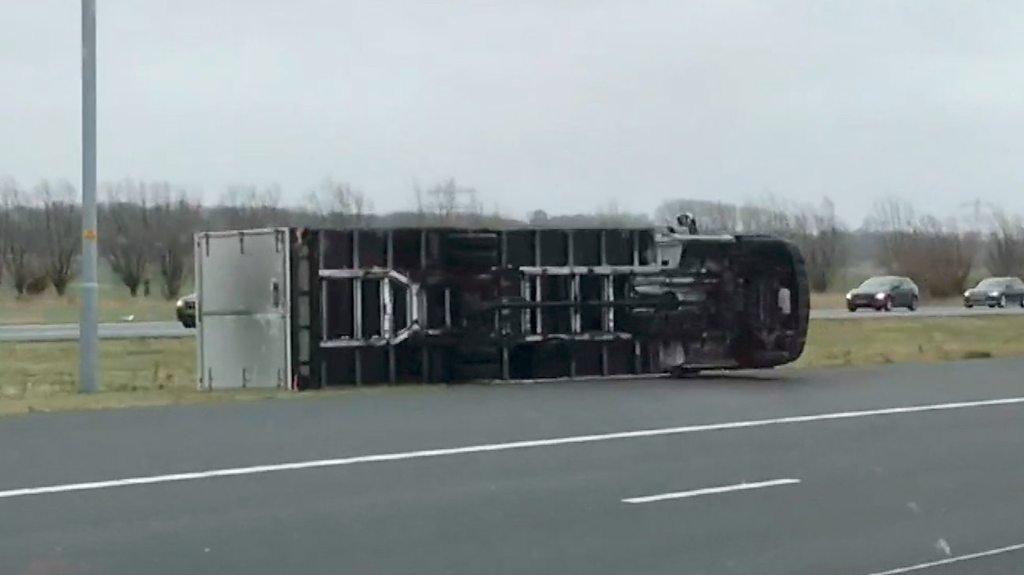
- Published18 January 2018
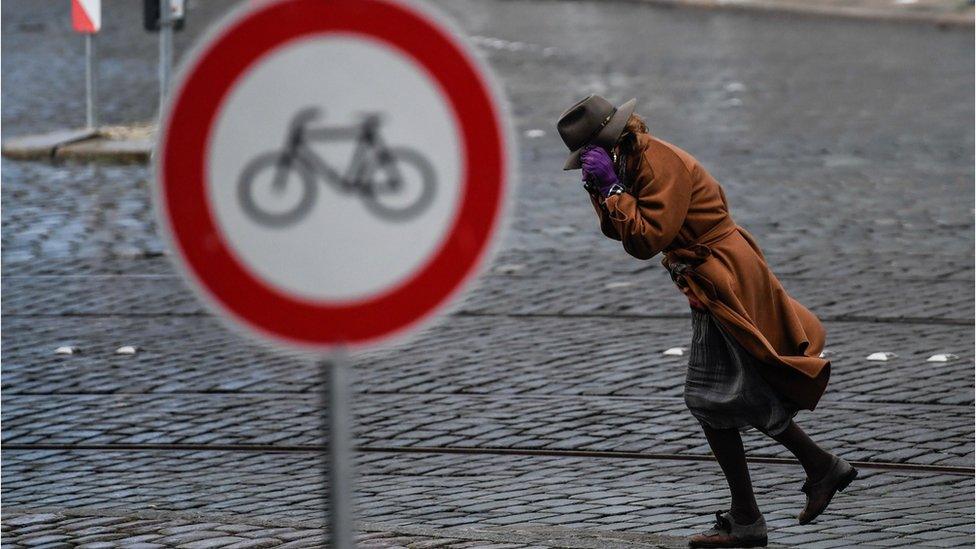
- Published18 January 2018
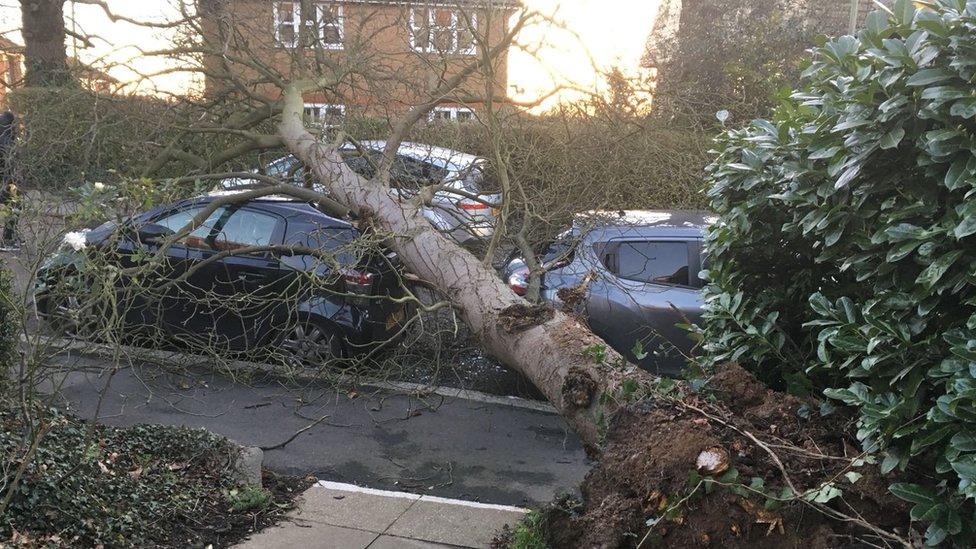
- Published18 January 2018
- Published18 January 2018
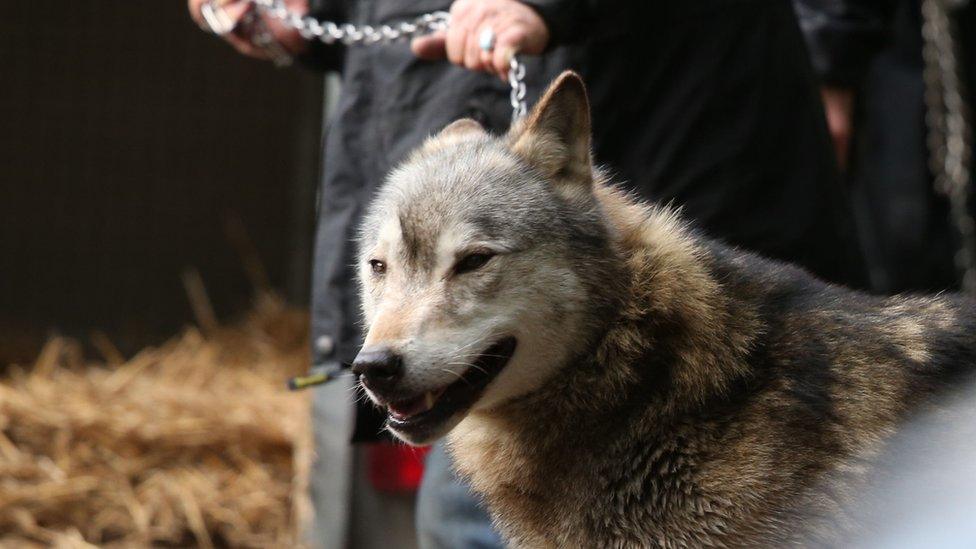
- Published18 January 2018

- Published18 January 2018
